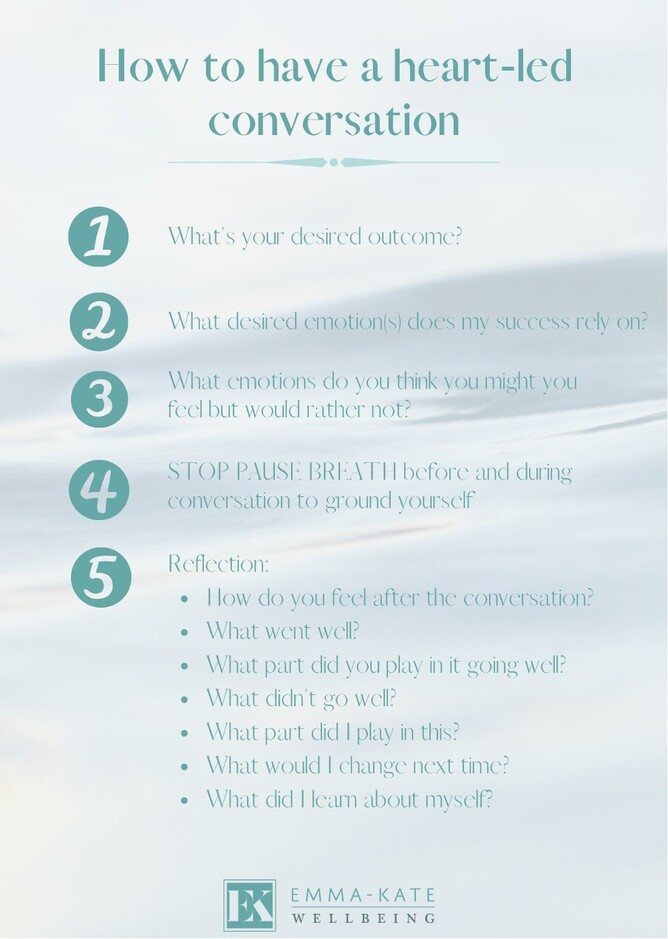We all know that sinking feeling of dread when we realise we need to have a difficult conversation with someone. Our thinking brain starts working overtime and reflects on all the things that can go wrong. Our emotions become heightened, and we become anxious.
What if she hates me when I tell her what I think?
What if he doesn’t want to work with me anymore?
What if they will not understand what I am trying to say?
What if I stumble, or can’t get my words out at all?
The result?
We go into the difficult conversation in a reactive state, often with little planning, or self-care ahead of the talk. This will leave us feeling burnt out, unproductive and most of all: it doesn’t make us great communicators.
So how do we have a heart-led conversation? I’ll explain in this blog.
How to have a difficult conversation while tapping into your emotion and leading with your heart
Before we have a difficult conversation, we should hold ourselves in a place of tenderness and ask ourselves if we are first willing to be voluble and open, both with ourselves and those around us.
By taking this first step, we can get a clue into why this conversation matters so much to us and what emotions are driving us to have our desired outcome without paying the price of emotional burnout before, during or after the conversation.
We can as a simple question using the Emotional Card Deck www.ridersandelephants.com
What wanted emotion does my success rely on?
Which emotions do I want to feel during, or after the conversation? When will I feel this difficult conversation was a success?
Is it compassion, courage, support, open-mindedness, or connection? Or all of these emotions?
When I know what success should feel like, I can ask myself what steps or actions I need to take to feel these emotions.
What emotions might I feel, but would rather not feel?
The next step would be to ask myself what emotions might come up, but I’d rather not feel.
These emotions are more likely to be reactive emotions if left unhandled, they’ll make it unlikely for us to feel connected, compassionate, or to be open-minded and non-judgmental during our difficult conversations. Our reactions and responses might come from a place of fear instead of love.
Stop, Pause, & Breathe
By spending a few minutes before the meeting thinking of which negative thoughts or emotions might come up, it allows you to have a plan in place for when you recognise them or feel them. You could simply choose to STOP, PAUSE AND BREATH, allowing yourself time to regulate your emotions before continuing your conversations.
Reflect
Reflecting on our difficult conversations can be really helpful to unpack our emotions one by one. It helps us recognise what went well, what didn’t go so well, and which part we had to play in this. Reflecting on and addressing both sets of emotions (the negative AND the positive) is incredibly important since our negative bias lets us focus our attention only on what went wrong.
Checking into how we feel helps us understand, let go and have a difficult conversation without feeling overwhelmed, or burning out.
Tapping into your heart before, and during difficult conversations, helps create mutual respect, compassion and empathy for ourselves and others. We are more likely to feel, hear and connect, leaving us feeling more productive and giving us an insight into how we can support ourselves and others.











